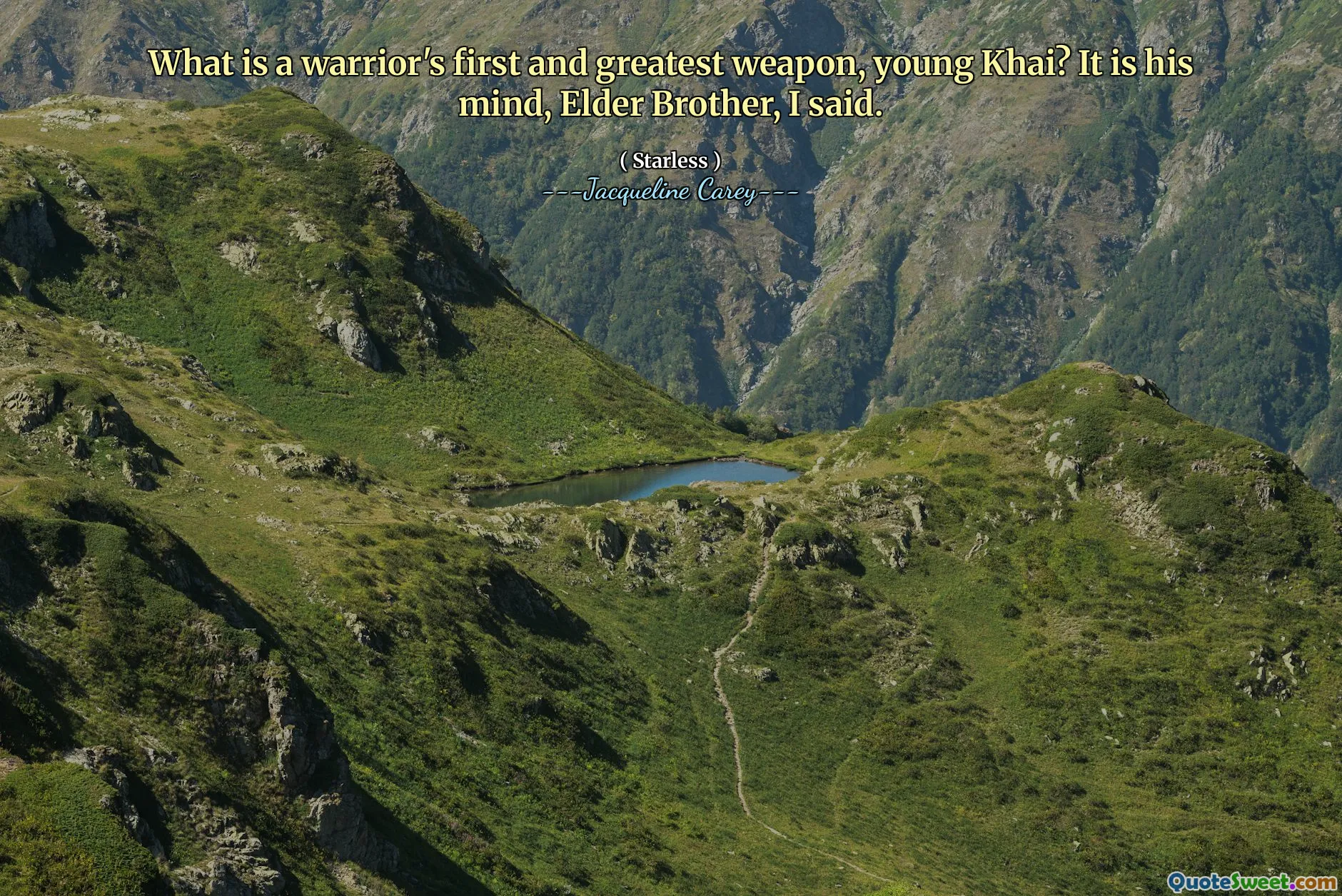
What is a warrior's first and greatest weapon, young Khai? It is his mind, Elder Brother, I said.
This quote emphasizes the fundamental importance of intellect and mental strength over brute force in the context of a warrior. It highlights that true power lies within one’s ability to think critically, strategize, and maintain mental clarity amidst chaos. The dialogue suggests that the supremacy of the mind is a universal truth applicable across cultures and eras—an idea as relevant in ancient combat as in modern challenges. The emphasis on the mind also implies that mastery over oneself, including emotional regulation and disciplined thought, is crucial for effective action and decision-making. In a broader sense, the quote encourages readers to value education, reflection, and psychological resilience as core components of strength. It invites us to reconsider notions of power that rely solely on physical ability, advocating instead for the cultivation of mental agility. Such a perspective resonates deeply in today’s world, where conflict often hinges not just on physical prowess but also on strategic thinking and mental toughness. The wisdom embedded here reminds us that true warriors—whether in battle or life—prioritize their mental faculties as their most vital asset. This idea underlines the timeless truth that the mind is a formidable tool that can shape outcomes far beyond the battlefield, transforming challenges into opportunities for growth and mastery.






